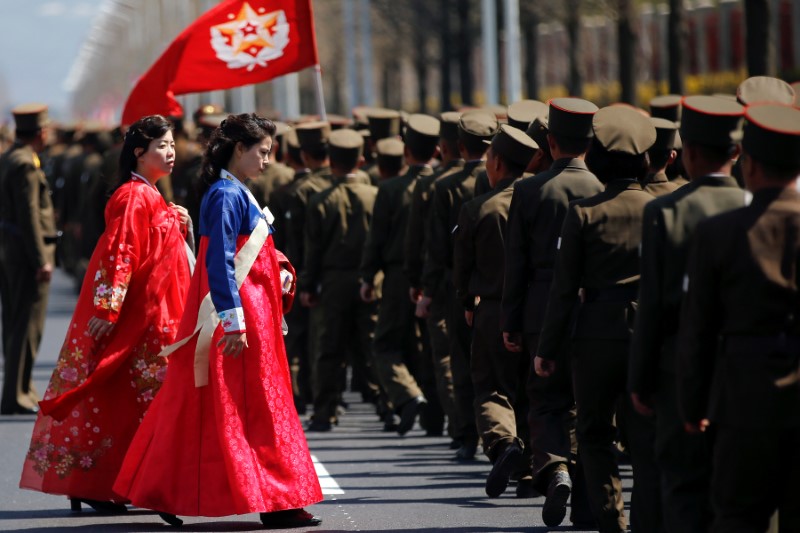
By Vivian Sequera and Francisco Aguilar
SOCOPO, Venezuela (Reuters) – It is mid-morning on a weekday yet all that can be heard in the once-bustling corridors of the Orlando Garcia state primary school is the swish of palm trees outside in the wind.
The white, tin-roof building in the town of Socopo once held nearly 400 children, yet closed two months ago in a protest by teachers and parents at low salaries and lack of school lunches.
Nearly 3 million children are missing some or all classes in Venezuela, according to a study by universities, in a depressing knock-on from a deepening economic crisis that could cause long-lasting damage to the South American country.
Venezuela has about 8 million school children in total, and free education was a cornerstone of ex-President Hugo Chavez’s 1999-2013 socialist rule of the OPEC nation.
Now, along with hospitals and other flagship welfare projects, the education sector is in crisis, heaping pain on Venezuelans and eroding Chavez’s legacy as his successor Nicolas Maduro seeks re-election in a May 20 presidential vote.
In Socopo, in the agricultural savannah state of Barinas that was once home to Chavez, half of the 20 public schools, including Orlando Garcia, closed completely in February, mid-term.
They have since reopened, but, along with the rest of Barinas’ approximately 1,600 public schools, they are operating just three days a week.
Venezuela’s economic implosion has led to millions suffering food shortages, unable to buy basic goods. Prices double every two or three months and the currency is worth less every day.
Education experts fear a stunted generation.
“Hungry people aren’t able to teach or learn,” said Victor Venegas, president of the Barinas chapter of the national Federation of Education Workers.
“We’re going to end up with a nation of illiterates.”
A major bonus for school children was once free food but state food programs are now intermittent, and when lunches do come, they are often small and missing protein.
The problems are felt across the country, with children often falling unwell or dizzy due to poor nutrition.
“We were singing the national anthem and I felt nauseous. I’d only eaten an arepa (a local cornbread) that day, and I fainted,” recounted Juliani Caceres, an 11-year-old student in Tachira state on the border with Colombia.
“BACK TO THE 19TH CENTURY”
While critics lambast him for incompetence and corruption, Maduro blames Venezuela’s crisis on Washington and the opposition, accusing them of waging an “economic war.”
Officials constantly downplay the social problems.
“There may be weaknesses in the food program in some municipalities, but we are always attentive and looking to improve the situation,” Education Minister Elias Jaua said in an interview in Barinas.
The government insists education remains a priority and says that 75 percent of the national budget goes to the social sector.
“Amid the economic war, the fall of oil prices, international harassment and financial persecution, not a single school has closed,” Maduro said at a Caracas rally last month, referring to U.S. sanctions against Venezuela.
His Barinas governor, Argenis Chavez, however, acknowledged the closures in Socopo, blaming them on the opposition as part of a plan to sabotage the upcoming election.
Despite Venezuela’s plethora of problems and Maduro’s personal unpopularity, he is widely expected to win re-election, given that the opposition’s most popular leaders are banned from standing and the main anti-Maduro coalition is boycotting the vote on grounds it is rigged in advance.
One opposition leader, former state governor Henri Falcon, has broken with the boycott and is hoping Venezuelans’ fury at their economic woes will translate into votes for him.
According to the opposition, prices rose more than 8,000 percent in the 12 months to March.
Teachers in the public sector earn around four times the minimum wage of just over a dollar a month at the black market exchange rate. That is nowhere near what Venezuelans need to feed themselves and their families.
“With my last paycheck, I was able to buy a kilo of meat and a kilo of sugar,” said Roxi Gallardo, a 35-year-old teacher in the Andean city of San Cristobal who, like so many others, is looking to leave Venezuela.
In addition to food shortages, school communities are suffering from a collapse in transport systems and inability to pay bus fares, plus frequent water and power-cuts.
“We’re heading back to the 19th century,” said Luis Bravo, an education researcher at Caracas’ Central University.
Doctor Marianella Herrera, at the same university, said the combination of inadequate nutrition and patchy education would cost Venezuela dearly in the future, depriving it of skilled workers.
“The longer this goes on without reversing the situation, the tougher it will be,” she said.
Eudys Olivier, a 39-year-old homemaker in a poor area of San Felix in southern Bolivar state, and her two children, live off her husband’s bakery wage of just under $5 per month.
“If there isn’t enough food, I prefer to leave the children at home,” she said. “I want them to go to school every day because it’s their future. But I can’t send them hungry.”
(Reporting by Vivian Sequera and Francisco Aguilar, Additional reporting by Maria Ramirez in Bolívar and Anggy Polanco in Tachira; Writing by Girish Gupta; Editing by Andrew Cawthorne, Daniel Flynn and Rosalba O’Brien)





